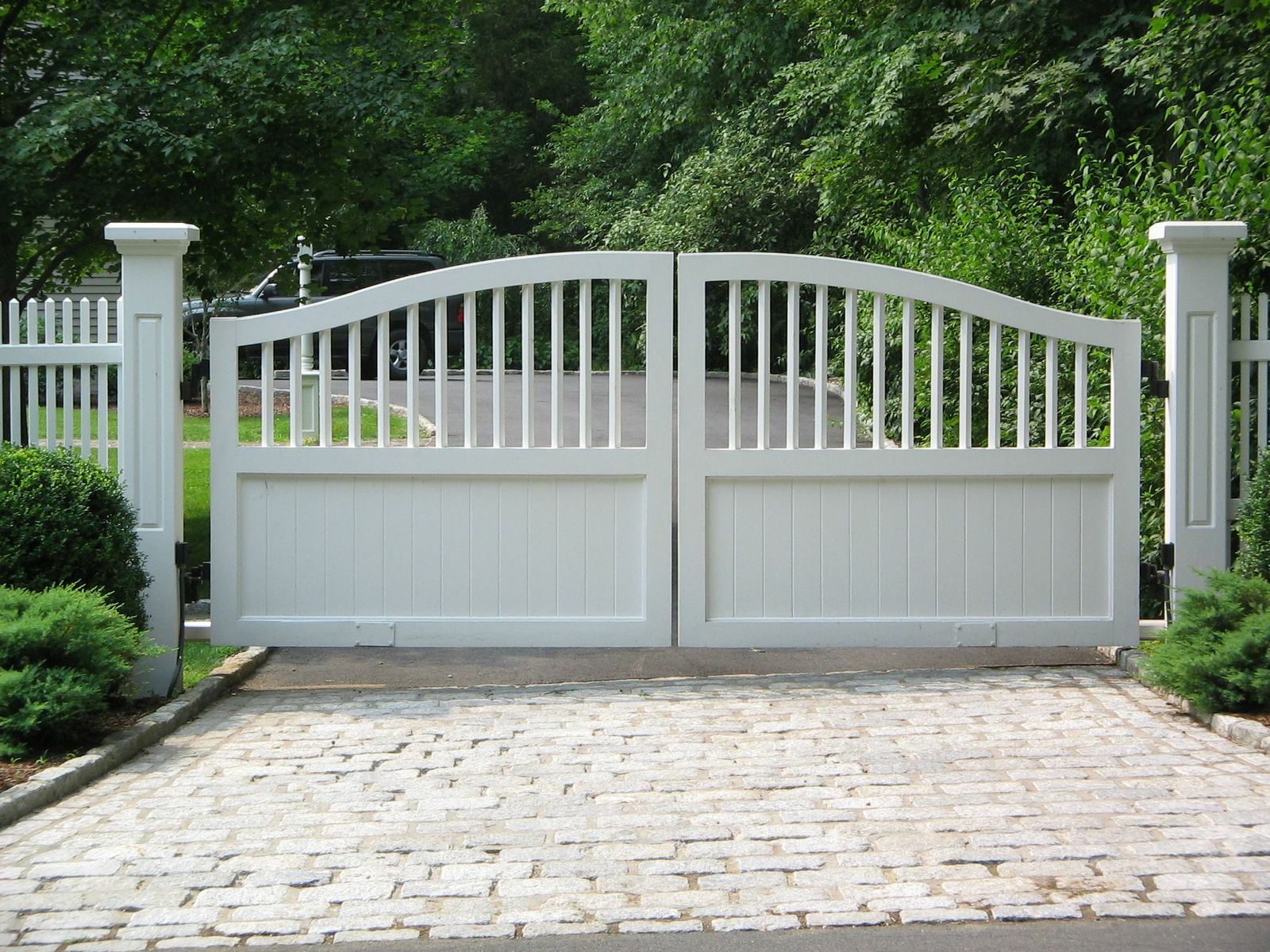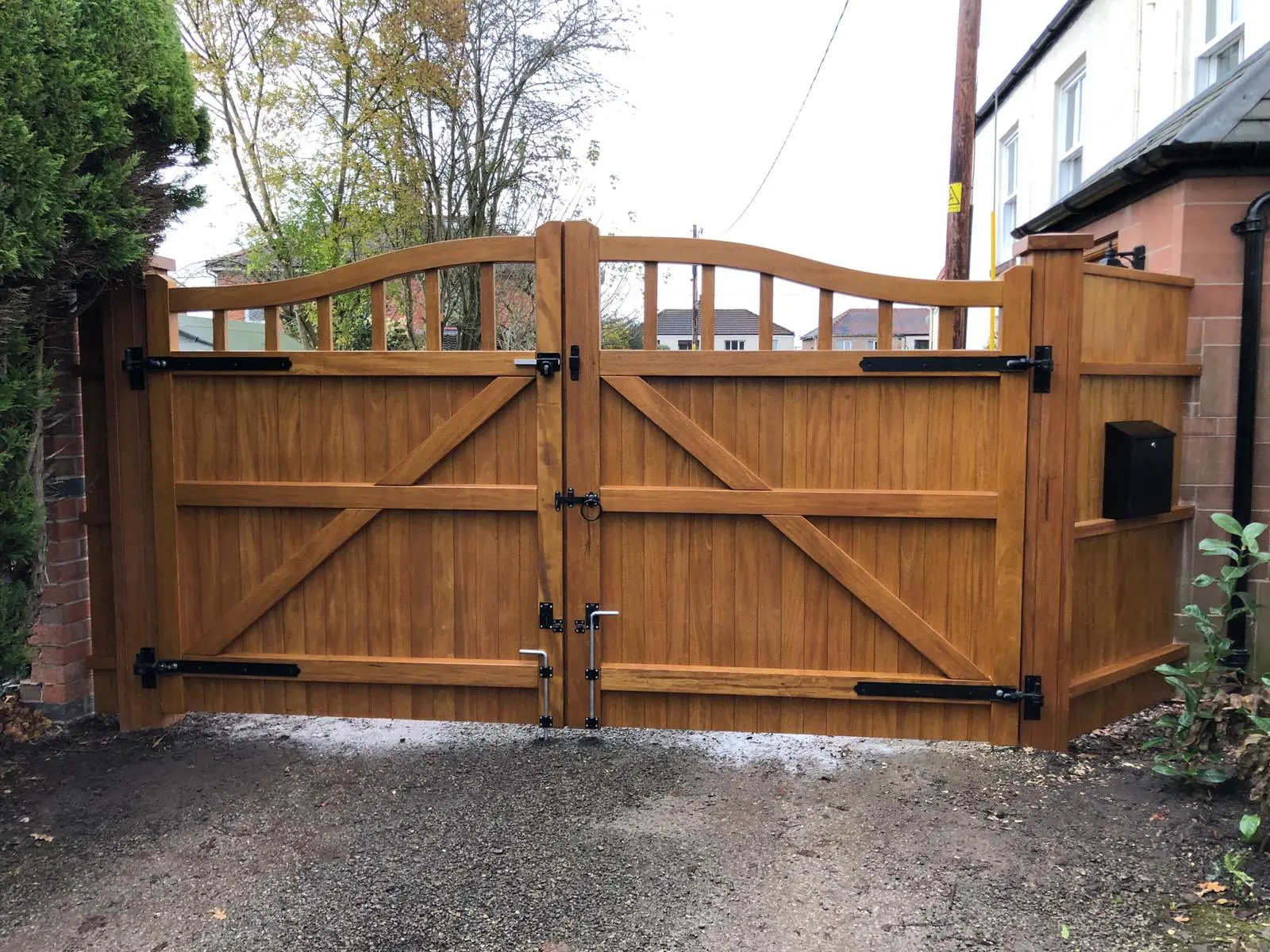Choosing the right wooden driveway gates for your property is an important decision, as they not only contribute to the aesthetic appeal of your home but also provide security, privacy, and functionality. With a wide range of styles, materials, and features available, it can be challenging to know where to start. Here’s a step-by-step guide to help you choose the perfect wooden driveway gates for your needs.
1. Consider the Gate Style
The style of your wooden driveway gates should complement the overall aesthetic of your property. Wooden gates come in a variety of styles, from traditional to contemporary, each offering a different look. Some common styles include:
- Swing Gates: Classic in design, these gates open in a swinging motion. Ideal for properties with enough space to accommodate them.
- Sliding Gates: Best for smaller or sloped driveways, sliding gates move horizontally along a track and require less space to operate.
- Contemporary Designs: These often feature minimalist lines or geometric patterns and are perfect for modern homes.
- Traditional Designs: If you have a more classic home, you might prefer gates with intricate woodwork, such as lattice or paneling.
- Arched Gates: These gates have a rounded top and can add a graceful, timeless touch to your entrance.
- Key Consideration: Choose a style that complements the architecture and character of your home.
2. Select the Right Wood Type
The type of wood you choose for your gates will affect both their appearance and longevity. Different types of wood have varying levels of durability, resistance to weathering, and aesthetic appeal. Some popular wood choices for driveway gates include:
- Redwood: Known for its rich color and natural resistance to rot and insects, redwood is a great choice for outdoor use.
- Cedar: Another durable and weather-resistant wood, cedar has a beautiful grain pattern and a pleasant scent. It’s also naturally resistant to pests.
- Oak: A strong, heavy wood with an elegant appearance. It’s highly durable but may require more maintenance to protect it from the elements.
- Teak: A premium choice for its long-lasting durability and luxurious finish, though it can be more expensive.
- Pine: A budget-friendly option, though it may require more maintenance to withstand the elements and pests.
- Key Consideration: Choose a wood that balances aesthetics with durability, depending on your budget and maintenance preferences.
3. Determine the Size and Dimensions
The size of your driveway gates should be proportionate to your property and driveway. Measure the width of your driveway carefully to ensure the gates will fit properly. Consider the following factors:
- Driveway Width: Make sure the gates are wide enough for your vehicles to pass through comfortably. If you plan to have larger vehicles or machinery access, ensure the gates accommodate those needs.
- Height: The height of the gates can also impact privacy and security. Standard heights are around 4-6 feet, but you can opt for taller gates for increased privacy and protection.
- Space for Operation: If you choose swing gates, ensure you have enough room for them to open fully without obstruction. Sliding gates require less space but need a track system to operate smoothly.
- Key Consideration: Ensure the gates fit your driveway’s dimensions and allow for smooth operation without any obstacles.
4. Consider Security Features
One of the main reasons for installing driveway gates is to enhance the security of your property. Wooden gates can be fitted with various security features, including:
- Locking Systems: Invest in a secure, high-quality locking mechanism to prevent unauthorized access. Consider automated locks or padlocks for added security.
- Gate Automation: For added convenience, you can choose electric-powered gates that can be opened remotely with a key fob or smartphone app. This option is perfect for homeowners looking for ease of use and modern security features.
- Reinforced Hinges: Make sure the hinges are sturdy and well-reinforced to prevent forced entry or damage.
- Key Consideration: Choose security features that meet your needs and provide peace of mind.

5. Evaluate Durability and Weather Resistance
Wooden gates are exposed to the elements, so it’s important to choose a material and finish that can withstand weather conditions over time. Consider the following:
- Weather Resistance: Make sure the wood is treated or naturally resistant to moisture, rot, and pests. Some wood species, like cedar and redwood, naturally resist decay, while others may need a protective finish.
- Finish and Sealing: Protect your wooden gates with a high-quality sealant or stain to guard against moisture, UV damage, and wear. Regular maintenance will be required to ensure the gates stay looking great for years.
- Climate Considerations: In areas with high humidity, select a wood that resists moisture, such as cedar. In regions with harsh sun, choose woods that resist cracking and fading, such as teak.
- Key Consideration: Select wood and finishes that are designed to endure your local climate and weather conditions.
6. Look for Customization Options
One of the benefits of wooden driveway gates is their customization potential. Many manufacturers offer bespoke designs that allow you to create gates that perfectly fit your vision. You can choose:
- Personalized Details: Add decorative elements such as wrought iron inserts, custom carvings, or unique handles to make your gates stand out.
- Stain and Paint Choices: Customize the color and finish of the wood to match the exterior of your home.
- Unique Shapes: Choose from a variety of shapes, including arched or rectangular, depending on your aesthetic preferences.
- Key Consideration: Opt for customization that enhances your property’s style and adds a personal touch.
7. Maintenance Requirements
Wooden gates require regular maintenance to keep them looking their best and ensure they last for years. Be prepared to:
- Reapply Sealant: Periodically reapply sealant or stain to protect the wood and maintain its appearance.
- Inspect for Damage: Regularly inspect the gates for signs of wear, such as cracks, loose hinges, or rot, and address any issues promptly.
- Clean the Gates: Keep your wooden gates clean by washing them gently with mild soap and water.
- Key Consideration: Be aware of the maintenance requirements for wooden gates and factor them into your decision-making process.
8. Budget Considerations
While wooden gates can enhance the look and security of your property, they come with varying costs depending on the type of wood, size, design, and additional features. Keep your budget in mind when choosing the gates and consider both the initial investment and long-term maintenance costs.
- Key Consideration: Choose a gate that fits your budget, but also consider the long-term value it adds to your home.
Conclusion
Choosing the right wooden driveway gates for your property involves careful consideration of style, size, security features, and maintenance requirements. By evaluating these factors, you can find the perfect wooden gates that enhance the curb appeal, privacy, and security of your home. Whether you opt for a traditional design or a custom-made modern gate, the right choice will provide lasting beauty and function for your property.
